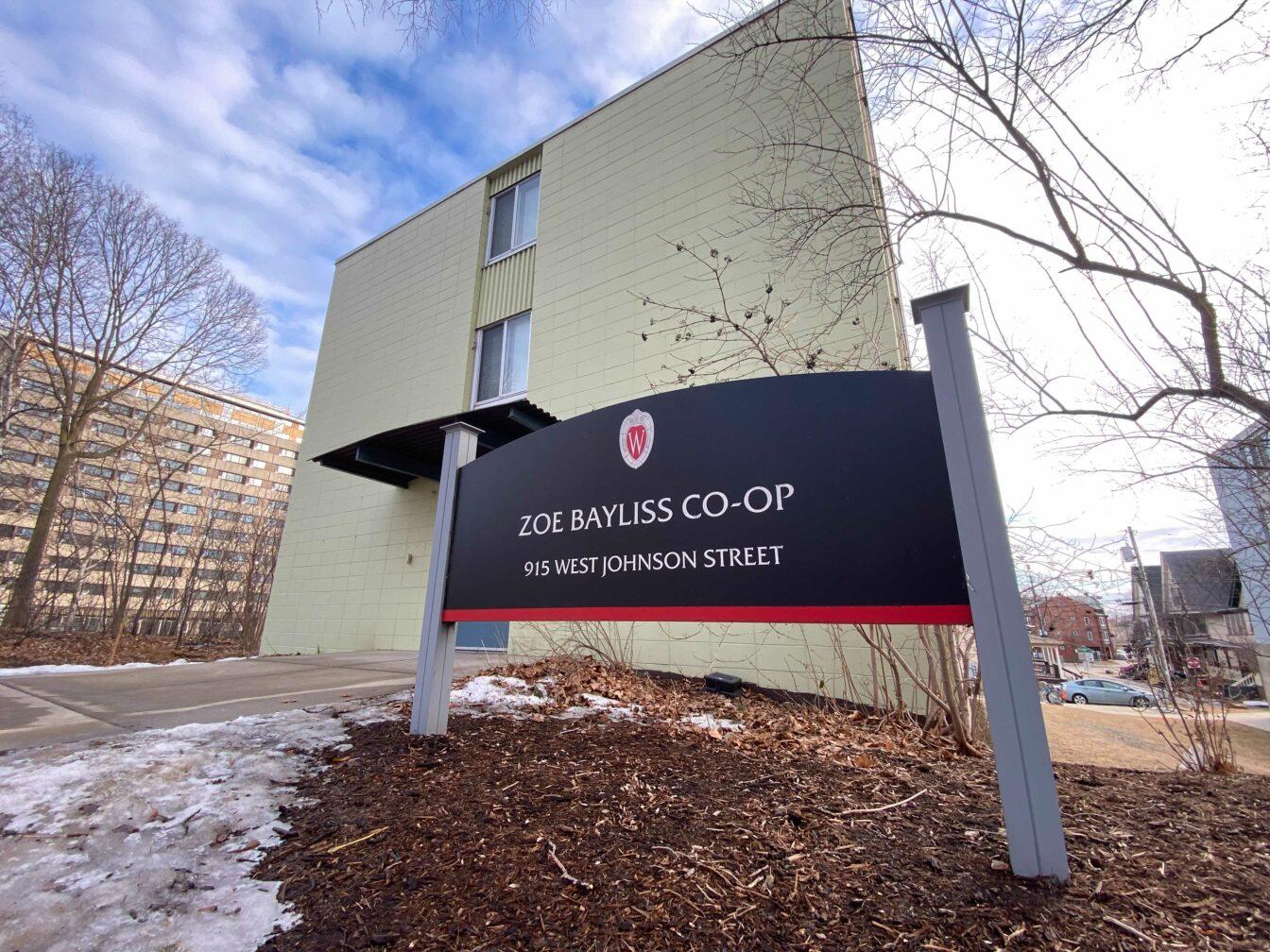The Zoe Bayliss Women’s Housing Cooperative — the last remaining student housing co-op on the University of Wisconsin campus — is scheduled for demolition with no solidified plans for an equivalent replacement from the university.
The UW-owned cooperative, located on 915 W. Johnson St., is going to be replaced by a new building for the College of Letters and Science — the largest college at UW. The university claims the $88.44 million Irving and Dorothy Levy Humanities Building is a necessary improvement from the current Mosse Humanities Building and will support “active learning, modern technology, and collaborative learning.”
L&S has 84 majors and more than 20,000 students who will benefit from the resources offered by the new space. According to the project overview, the new building will consolidate programs from seven different locations into one building.
Despite this, there is no concrete plan to replace the student housing co-op that currently exists in that space and has housed dozens of students each year since 1955.
Now, the residents of Zoe Bayliss are rightfully demanding an agreeable solution before their historic co-op is gone after the 2022-2023 school year.
Housing cooperatives are affordable housing communities that share responsibilities for cleaning and maintenance amongst the members. On a university campus like UW, they provide a hands-on way for students to get involved in self-governance and social cooperation.
Housing co-ops are crucial because they allow residents to have a say in how their housing is operated while also keeping housing affordable. Living in Zoe Bayliss totals a fraction of the price of living in a residence hall, with an annual price of about $5,000. Included in the rent for Zoe Bayliss residents is two meals every weekday prepared by a co-op employee and 24-hour access to a kitchen.
Residents of Zoe Bayliss speak highly of the community that has been created throughout the 67 years of the co-op. Co-op president Angela Maloney wrote an email statement to The Badger Herald last month to address the university’s plans — or lack thereof.
“It feels like the university did zero planning to think through how their decision to tear down our building would affect our community,” Maloney said. “It’s important to keep Zoe Bayliss alive for future UW students.”
The university has made little attempt to replace the co-op with a space that carries equal benefits, threatening the strong and vibrant community that has defined the co-op for decades. Most recently, UW offered a learning-community-adjacent proposal that would take up a floor of a residence hall.
This proposal overlooks defining characteristics of Zoe Bayliss, specifically the level of autonomy and financial control that comes with a housing co-op.
The Zoe Bayliss Housing Cooperative’s mission to “create an experience in responsible, cooperative living and to encourage academic and personal exploration in a flexible, open, and friendly atmosphere” is one that the university should embrace and work to advance — not tear down.
While the L&S building will benefit students who are able to use its resources each semester, taking away the unique and vital co-op as an option is unjust and continues patterns of taking away affordable-housing options on campus.
UW says the new L&S building may improve student success outcomes. But, they fail to acknowledge the success outcomes boosted by experiences in housing co-ops that teach collaboration and problem-solving while providing a way for students to connect with others from diverse backgrounds.
The university has known about this project for years and still failed to propose an adequate replacement, unjustly threatening the safe and affordable housing of Zoe Bayliss residents. While University Housing Director Jeff Novak says options are being explored, co-op residents still feel overlooked.
The residents of Zoe Bayliss have begun an effort to save their housing co-op. This movement has been supported by the Madison Area Cooperative Housing Alliance, the BIPOC Coalition, Associated Students of Madison, State Representative Francesca Hong and more.
Residents created a petition calling on the university to acknowledge the rights of current residents to remain in their current building — or at least provide a sufficient alternative. The petition expresses residents’ concerns that UW “has been unclear about how the move would affect pricing other than acknowledging that rent for residents would certainly increase.”
This is an issue of equity that UW needs to stop brushing under the rug by offering inadequate solutions. If UW has the resources to build new state-of-the-art learning spaces like the ones that will be offered in the Irving and Dorothy Levy Humanities Building, they can work to find an adequate and realistic space for the students that would otherwise be displaced by the demolition of the Zoe Bayliss Women’s Housing Cooperative.
Leah Terry (lmterry@wisc.edu) is a junior majoring in political science and communication arts and pursuing a certificate in public policy.


